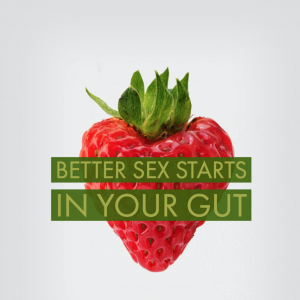“UVA REVERSES DEPRESSION SYMPTOMS IN MICE USING PROBIOTICS,” screamed the headlines on March 7, 2017. It seems that everywhere we look for answers as to why so many of us are getting more and more tired, bloated, overweight, anxious and overly stressed, we find the microbiome listed as a possible top cause. The microbiome, that beehive-like agglomeration of bacteria, good and bad, in our gut plays a very complex and important role in our everyday life. Its function ranges from facilitating digestion and excretion, to hormone metabolism, sleep and hunger control.
Depression and anxiety are no exception. Because depressive disorders, including the ones resulting from extreme stress, are now the one of leading causes of disability, the development of new approaches in the exciting and emergent field of how Microbiome relates to depression hold an unprecedented amount of hope for those suffering from this devastating condition. With the goal of addressing the identification and prevention of depression, and how gut microbiota influences brain development, mood and behavior in humans, researchers around the world are looking at the relevance of the microbiome-gut-axis in treating mood disorders. The recognition that the microbiome is directly influenced by environmental risk factors, such as diet and stress, has slowly lead to the development of interventions targeting the microbiome for the prevention and treatment of many common conditions, such as IBS, chronic fatigue syndrome and even some cancers. The next frontier is to connect an unbalanced microbiome to mood disorders, including depression.
Since the microbiome is heavily influenced by how we eat, unhealthy diet has therefore held top place as a significant risk factor for depression. Studies such as the most recent one done at the University of Virginia (UVA) are investigating how diet may influence gut microbiota and how when out of balance, it may influence depressive illness. Innovative dietary approaches and supplementation with high quality and diverse of pre and probiotic formulation and fermented foods are shining the light on the fact that “we are what we eat” and that emotional stability and overall well-being follow it.
Treating Depression
Data by the Centers for Disease Control and the American Psychiatry Association (APA) show that depression is one of the most common mental health conditions in the United States, with up to 7 percent of people experiencing a major depressive episode.
At a recent study conducted at UVA on March 7, 2017, researchers reversed depression symptoms in mice by feeding them Lactobacillus, a probiotic bacteria found in live-cultures yogurt. They further discovered a specific mechanism for how the bacteria affect mood, providing a direct link between the health of the gut microbiome and mental health.
“When you’re stressed, you increase your chance of being depressed, and that’s been known for a long, long time,” said lead researcher Alban Gaultier. The question that Gaultier and his team wanted to ask was whether or not the microbiome participates in depression?
The answer was yes. Looking at the composition of the gut microbiome before and after mice were subjected to stress, Gaultier and his team team found that stress lead to the loss of Lactobacillus, which in turn lead to the onset of depressive symptoms. Feeding the mice with Lactobacillus in their food influenced their mood and returned them to almost normal. Gaultier found that the amount of Lactobacillus in the gut affects the level of a metabolite in the blood called kynurenine, which is known to drive depression. Diminished Lactobacillus in the gut resulted in an increased levels of kynurenine that lead to symptoms of depression.
“The big hope for this kind of research is that we won’t need to bother with complex drugs and side-effects when we can just play with the microbiome. “It’s [depression] a huge problem and the treatments are not very good, because they come with huge side-effects,” he said It would be magical just to change your diet, to change the bacteria you take, and fix your health – and your mood”, said Gaultier.
He further explained that the research results were the most consistent change he’d seen across different experiments studying microbiome profiles. That is, Lactobacillus levels correlated directly with the behavior of the mice in the study.
Testing in Humans
Gaultier made a point to call the symptoms seen in mice as “depressive-like behavior” or “despair behavior,” since mice have no way to communicate that they are feeling depressed. But those symptoms are widely accepted as the best available model for looking at depression in creatures other than humans.
Based on the new findings, Gaultier and his team intend to examine the effects of Lactobacillus on depression in patients with multiple sclerosis, a group in which the disorder is common. Promisingly, the same biological substances and mechanisms Lactobacillus uses to affect mood in mice are also seen in humans, suggesting the effect may be the same.
While there is no harm in people depression eating yogurt, except for those who with allergy or sensitivity to dairy as well for those who are vegan, patients being treated for depression should not stop taking their antidepressants or any other medication without consulting their physicians. Although current research has shown the potential benefits of using probiotic as an adjunct in the treatment of depression and anxiety, more studies particularly in humans are still needed.
The study findings have been published online by the scientific journal Scientific Report.
Reference.
- Alban Gaultier, et al. Microbiota alteration is associated with the development of stress-induced despair behavior. Scientific Reports 7, article number 43859 (2017)
- Kupfer, D. J. Frank, E& Phillips, M. L. Major depressive disorder: new clinical neurobiological, and treatment perspectives. Lancet 379, 1045–1055 (2012.
- Nishino, R. et al. Commensal microbiota modulate murine behaviors in a strictly contamination-free environment confirmed by culture-based methods. Neurogastroenterology and motility: the official journal of the European Gastrointestinal Motility Society 25, 521–528, (2013).
- Zheng. P. et al. Gut microbiome remodeling induces depressive-like behaviors through a pathway mediated by the host’s metabolism. Molecular psychiatry 21, 786–796, (2016).
- Diaz Heijtz, R. et al. Normal gut microbiota modulates brain development and behavior. Proc Natl Acad Sci USA 108, 3047–3052 (2011).
- Hertzberger, R. et al. H(2)O(2) production in species of the Lactobacillus acidophilus group: a central role for a novel NADH-dependent flavin reductase. Appl Environ Microbiol 80, 2229–2239,
- Vecsei, L., L., Fulop, F. & Toldi,, J. Kyrurenines in the CNS Recent advances and new questions. Nat Rev Drug Disc 12, 64-82 (2013)
- Sarah Dash; Gerard Clarke; Michael Berk; Felice N. Jacka.
- The Gut Microbiome and Diet in Psychiatry: Focus on Depression. Current Opinion in Psychiatry. 2015;28(1):1-6.





